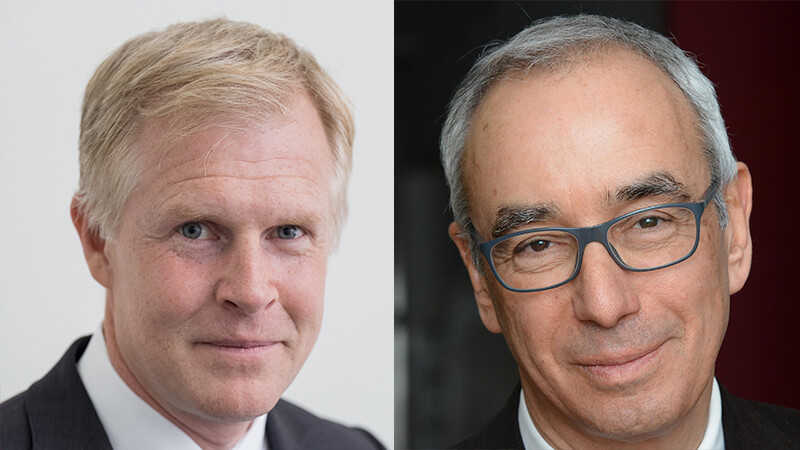
Henrik Enderlein, Jean Pisani-Ferry and other prominent European economists recently proposed reforms to ensure prosperity and make the currency union more robust.
Fourteen prominent European economists, including Hertie School Professor of Political Economy Henrik Enderlein and Professor of Economics and Public Management Jean Pisani-Ferry, have published a reform proposal for the euro area. The policy paper offers specific ideas aimed at making the currency union more robust and ensuring long-term prosperity for the euro area.
Reconciling risk sharing with market discipline: A constructive approach to euro area reform, was published on 17 January by the Centre for Economic Policy Research (CEPR). The authors call on countries to bridge disagreements over the direction of reforms, in particular by accepting the idea that market discipline and risk sharing are not substitutes for one another, but rather "complementary pillars of the euro area financial architecture". Ensuring long-term stability will require a reformed institutional framework and effective stabilisation and insurance mechanisms, which cannot result in permanent transfers, they say.
"The current approach to fiscal discipline – an attempt to micro-manage domestic policies through complex and often divisive fiscal rules – needs to be replaced by a combination of streamlined rules, stronger institutions, and market-based incentives, with the aim of strengthening national responsibility," the authors say.
If current fragilities in the system are not addressed through comprehensive reforms, there is a good chance of another major euro-area crisis in the foreseeable future, the economists warned in an editorial published in September 2017 in Le Monde and in the Frankfurter Allgemeine Zeitung.
To download the CEPR paper, please visit www.cepr.org
The authors of the CEPR paper are Agnès Bénassy-Quéré, Paris School of Economics and University of Paris 1; Markus Brunnermeier, Princeton University; Henrik Enderlein, Hertie School and Jacques Delors Institute Berlin; Emmanuel Farhi, Harvard University; Marcel Fratzscher, DIW and Humboldt University Berlin; Clemens Fuest, Ifo Institute and University of Munich; Pierre-Olivier Gourinchas, University of California at Berkeley; Philippe Martin, Sciences Po, Paris and Conseil d'Analyse Économique; Jean Pisani-Ferry, Bruegel, EUI, Hertie School and Sciences Po; Hélène Rey, London Business School; Isabel Schnabel, University of Bonn and German Council of Economic Experts; Nicolas Véron, Bruegel and Peterson Institute for International Economics; Beatrice Weder di Mauro, INSEAD and University of Mainz; and Jeromin Zettelmeyer, Peterson Institute for International Economics.
